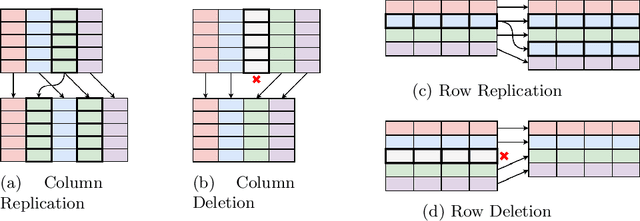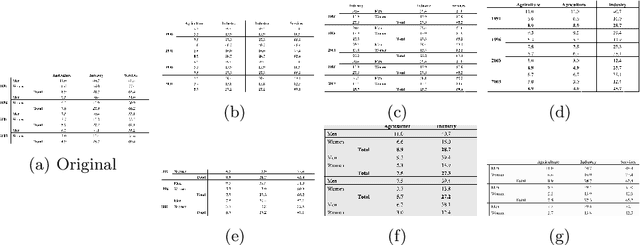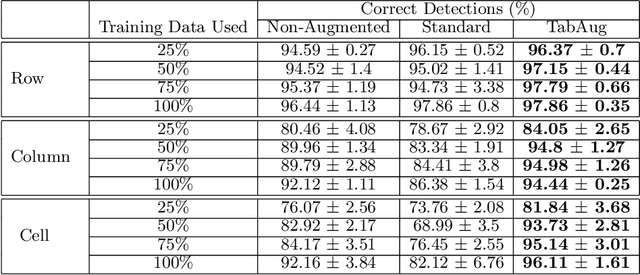TabAug: Data Driven Augmentation for Enhanced Table Structure Recognition
Paper and Code
May 15, 2021



Table Structure Recognition is an essential part of end-to-end tabular data extraction in document images. The recent success of deep learning model architectures in computer vision remains to be non-reflective in table structure recognition, largely because extensive datasets for this domain are still unavailable while labeling new data is expensive and time-consuming. Traditionally, in computer vision, these challenges are addressed by standard augmentation techniques that are based on image transformations like color jittering and random cropping. As demonstrated by our experiments, these techniques are not effective for the task of table structure recognition. In this paper, we propose TabAug, a re-imagined Data Augmentation technique that produces structural changes in table images through replication and deletion of rows and columns. It also consists of a data-driven probabilistic model that allows control over the augmentation process. To demonstrate the efficacy of our approach, we perform experimentation on ICDAR 2013 dataset where our approach shows consistent improvements in all aspects of the evaluation metrics, with cell-level correct detections improving from 92.16% to 96.11% over the baseline.
 Add to Chrome
Add to Chrome Add to Firefox
Add to Firefox Add to Edge
Add to Edge